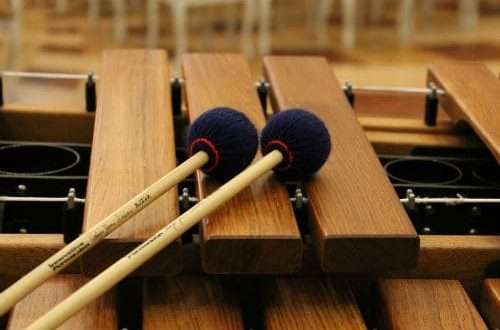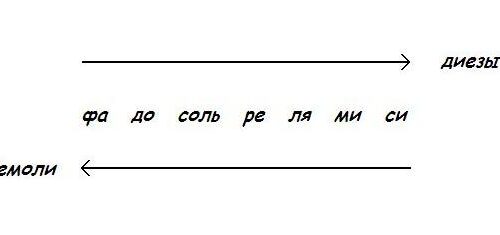What operas did Tchaikovsky write?
If you ask random people about what operas Tchaikovsky wrote, many will tell you “Eugene Onegin”, maybe even sing something from it. Some will remember “The Queen of Spades” (“Three cards, three cards!!”), perhaps the opera “Cherevichki” will also come to mind (the author conducted it himself, and that’s why it’s memorable).
In total, the composer Tchaikovsky wrote ten operas. Some, of course, are not widely known, but a good half of these ten constantly delight and excite audiences from all over the world.
Here are all 10 operas by Tchaikovsky:
1. “The Voevoda” – an opera based on the play by A.N. Ostrovsky (1868)
2. “Ondine” – based on the book by F. Motta-Fouquet about the undine (1869)
3. “The Oprichnik” – based on the story by I.I. Lazhechnikova (1872)
4. “Eugene Onegin” – based on the novel of the same name in verse by A.S. Pushkin (1878)
5. “The Maid of Orleans” – according to various sources, the story of Joan of Arc (1879)
6. “Mazeppa” – based on the poem by A.S. Pushkin “Poltava” (1883)
7. “Cherevichki” – an opera based on the story by N.V. Gogol’s “The Night Before Christmas” (1885)
8. “The Enchantress” – written based on the tragedy of the same name by I.V. Shpazhinsky (1887)
9. “The Queen of Spades” – based on the story by A.S. Pushkin’s “Queen of Spades” (1890)
10. “Iolanta” – based on the drama by H. Hertz “King Rene’s Daughter” (1891)
My first opera “Voevoda” Tchaikovsky himself admitted it was a failure: it seemed to him unintegrated and Italian-sweet. Russian hawthorns were filled with Italian roulades. The production was not resumed.
The next two operas are “Undine” и “Oprichnik”. “Ondine” was rejected by the Council of Imperial Theaters and was never staged, although it contains several very successful melodies that mark a departure from foreign canons.
“The Oprichnik” is the first of Tchaikovsky’s original operas; arrangements of Russian melodies appear in it. It was a success and was staged by various opera groups, including foreign ones.
For one of his operas, Tchaikovsky took the plot of “The Night Before Christmas” by N.V. Gogol. This opera was originally entitled “The Blacksmith Vakula”, but was later renamed and became “Shoes”.
The story is this: here the shinkar-witch Solokha, the beautiful Oksana, and the blacksmith Vakula, who is in love with her, appear. Vakula manages to saddle the Devil and force him to fly to the queen, to get slippers for his beloved. Oksana mourns the missing blacksmith – and then he appears on the square and throws a gift at her feet. “No need, no need, I can do without them!” – answers the girl in love.
The music of the work was reworked several times, with each new version becoming more and more original, the passage numbers were omitted. This is the only opera that the composer himself undertook to conduct.
What operas are the most famous?
And yet, when we talk about what operas Tchaikovsky wrote, the first thing that comes to mind is “Eugene Onegin”, “The Queen of Spades” и “Iolanta”. You can add to the same list “Shoes” с “Mazepoi”.
“Eugene Onegin” – an opera whose libretto does not need a detailed retelling. The success of the opera was amazing! To this day it remains in the repertoire of absolutely all (!) opera houses.
“The Queen of Spades” also written based on the work of the same name by A.S. Pushkin. Friends tell Herman, who is in love with Lisa (in Pushkin, Hermann), the story of three winning cards, which are known to her guardian, the Countess.
Lisa wants to meet Herman and makes an appointment for him at the old countess’s house. He, having sneaked into the house, tries to find out the secret of the magic cards, but the old countess dies of fear (later, it will be revealed to him by the ghost that it is “three, seven, ace”).
Lisa, having learned that her lover is a murderer, throws herself into the water in despair. And Herman, having won two games, sees the queen of spades and the ghost of the countess instead of the ace in the third. He goes crazy and stabs himself, remembering the bright image of Lisa in the last minutes of his life.
Tomsky’s Balada from the opera “The Queen of Spades”
The composer’s last opera became a real hymn to life – “Iolanta”. Princess Iolanta is unaware of her blindness and is not told about it. But the Moorish doctor says that if she really wants to see, healing is possible.
The knight Vaudemont, who accidentally entered the castle, declares his love for the beauty and asks for a red rose as a souvenir. Iolanta picks off the white one – it becomes clear to him that she is blind… Vaudémont sings a real hymn to the light, the sun, and life. An angry king, the girl’s father, appears…
Fearing for the life of the knight whom she had fallen in love with, Iolanta expresses a passionate desire to see the light. A miracle has happened: the princess sees! King René blesses his daughter’s marriage to Vaudemont, and everyone praises the sun and light together.
Monologue of the doctor Ibn-Khakia from “Iolanta”



